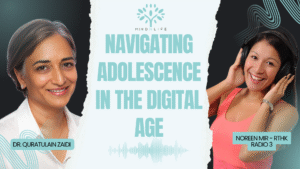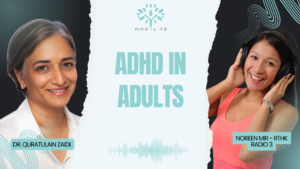Relocation to a new home presents unique challenges, many of which particularly affect expat children. As we discovered in recent conversation with expert clinical psychologist Dr Quratulain Zaidi, it’s certainly not the only one. Making the transition to expat Hong Kong is easier than you think. Read on for Dr Zaidi’s tips to lose the relocation stress in children through school, environment and culture.
What are some of the main challenges facing children who move to a new country?
Settling into a new home, school, culture and environment can be a challenge for expat children, as can the search for new friends. Getting used to the humid weather is just an added difficulty! The upside for young people is that they get to experience living in a different culture and environment, and they begin to accept that things do change.
While there are people who have been settled in Hong Kong for decades, who have their own network of friends and are well established, there is also a very transient Hong Kong, one where expat families come and go so frequently that children struggle to develop long-term friendships. On the other hand, because everyone is in the same boat, you tend to find close friends much more quickly because everyone is looking for that support network that they have left behind at home.
Parents may also find it tough adjusting to new environment, but a key here is that if you are open to new experiences in Hong Kong, your children will be more accepting of the experiences too.
Are there any problems that arise that are specific to Hong Kong?
Aside from the pollution, the extremely affluent environment is fairly unique. It can be hard to keep your children grounded so they don’t fall into the trap of thinking, “Oh, my friend has the latest gadget, and I don’t.” Birthday party bags here have been known to have Canon cameras in them!
Is there a particular age group of expat children that is most affected by relocating?
It depends on the individual child how the move affects them. Some children have stress and trouble from the beginning, while others seem to take the change in their stride. Other times, the beginning can be exciting and then the reality sets in six months after the move as they begin to feel homesick.
Teens tend to find it either very easy or very hard; again, it depends on what they were facing in their home country; for some it’s great to have a new start; others miss the life that they have left behind.
Is keeping in contact with old friends (via Skype, for instance) useful or important for expat kids?
It’s a balancing act: finding the right balance to stay in touch with the old friends and wider family while actively making new friends. Both are important, as long as there is some shift to real-life friends here in Hong Kong.
At what point should professional help be sought?
In younger children, watch out for regression, including changes in sleeping, eating and potty training, or sudden behavioural changes like unexplained anger or emotional outbursts.
In older children, keep an eye on any withdrawal from activities that they usually enjoy doing, and general social withdrawal including refusal to go to school. Other signs include a preference for being alone or on the internet, major mood swings and behavioural changes or unusual aggression.
What are some of the ways you address the challenges faced by expat Hong Kong children?
One coat does not fit all – it really depends on the individual. Examples of issues I’ve seen in children include: a child having tummy aches yet the doctor can’t find anything wrong with them biologically; a child with a tic that went away and is now back; a child refusing to speak in class or acting aggressively in their new environment; children starting to worry about having their home and room clean and making sure everything is tidy at all times so they don’t go out at all.
Individualised treatment plans are based on empirically proven techniques of Cognitive Behavioural Therapy, child-centred therapy, solution-focused therapy and some mindfulness that works really well with children and teens.
The basic premise is that your thoughts, feelings and behaviours impact each other, and realising that thoughts are just thoughts, and that it’s up to you which one you pay attention to can determine how you feel. Feelings come and go and change throughout the day; they don’t stay the same.
I teach them to recognise their body signals for the flight and flight response, and to use calming strategies before the emotional storm takes over. These include deep breathing or visualisation techniques – creating a “safe place”.
Ultimately, we work together to find out that we always have a choice about which thoughts we to pay attention to. Creating some space between feelings and thoughts helps us see things more clearly, and usually things are not as bad as we imagine them to be.
It’s the family and the children who have the final choice on how they want to experience their time in Hong Kong.
Dr Zaidi’s advice for helping children transition to their new home
- Keep the home routines similar to what they have always been.
- Make time to listen to your children; be mindful of their feelings and experiences.
- Allow your children to express how they feel and validate their feelings by listening empathetically.
- Keep the communication open at all times so if things come up they will talk to you.
- Practice your own traditions while taking part in some of the fabulous festivals here in Hong Kong, including the Lantern Festival and the Dragon Boat Festival.
- Join in after-school activities outside of school, near where you live, to meet a wider variety of similar age group children within the same area.
(as originally published in Expat Living)

Dr. Quratulain Zaidi (BSc. Hons, MSc, MSc, PhD) is a mother and a member of the British Psychological Society and British Association Counselling & Psychotherapy and abides by the Ethical Framework for Good Practice in Counselling and Psychology. She has lived in Hong Kong and Singapore for 12 years. She specialises in assisting families with issues including parenting, teen issues, Cybersafety, marriage guidance, post natal depression, stress and anxiety disorders, depression, bullying, eating disorders, OCD and self-harm. She is an expert in educational assessments and learning challenges in children, for example ADHD, ADD, Dyslexia and ASD.
[ess_post]







